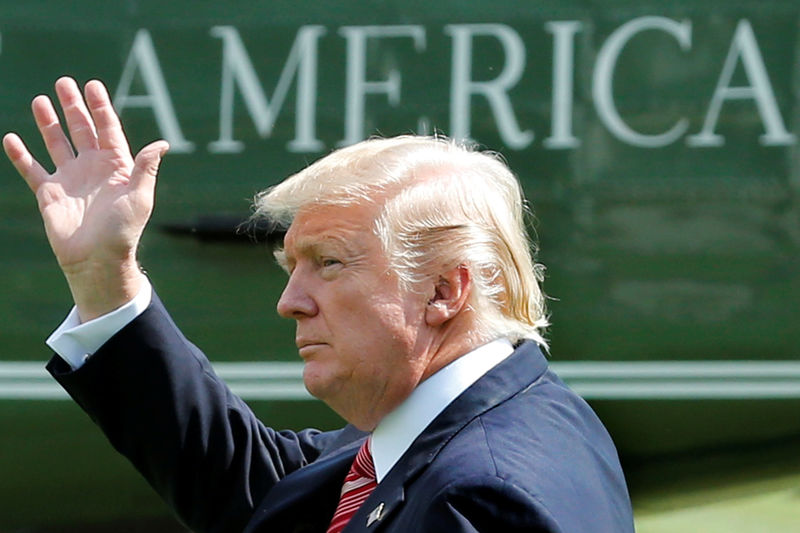By Howard Schneider and Jonathan Spicer
JACKSON HOLE, Wyo. (Reuters) - President Donald Trump's name was rarely mentioned as top central bankers and economists spent Friday mulling the fate of the global economy at a mountain lodge here.
But his presence loomed large at a Federal Reserve symposium, and even without citing the man in the White House, the presentations - from Fed chair Janet Yellen, European Central Bank President Mario Draghi and a host of researchers - amounted to a broad rebuttal of many of the ideas that carried Trump to office.
It was a day when the president's calls for financial deregulation and "America First" economic nationalism were countered by Yellen's reminder of how a deep financial crisis wrecked the economy a decade ago, and economic research arguing that China and Mexico are less to blame for job losses than forces like technology.
"For some, memories of this experience may be fading - memories of just how costly the financial crisis was and of why certain steps were taken," Yellen said in arguing for only modest changes to existing regulations.
Yellen is still in the running to be reappointed by Trump to a new term.
Draghi, traveling from Frankfurt and representing a group of U.S. allies that the administration has sparred with over climate change, trade and other issues, gave a broad call for free trade and stronger multilateral institutions of the sort Trump has criticized.
"A turn toward protectionism would pose a serious risk for continued productivity growth and potential growth in the global economy," Draghi said in a lunch address that included a defense of the World Trade Organization, the Group of 20 and other global groups he felt should be strengthened.
The rise of Trump, the vote by Britain to leave the European Union and the spread of opposition to globalization have worried central bankers and many mainstream economists who feel that the problems associated with globalization have overshadowed the benefits and morphed into broad opposition to it.
Remedies for these issues may be outside the immediate sphere of monetary policy, but they are concerned that new waves of protectionism or reckless deregulation could threaten an economic system that is currently stable and that has returned to growth across the world.
SKEPTICISM ABOUT TRUMP APPROACH
In a panel on trade, there was more direct skepticism of Trump's approach, even as economists and central bankers here agreed they had ignored for too long how difficult the adjustment would be for workers.
"We have lost the rhetoric on trade in terms of explaining to those who benefit why they do, such as cheaper products, while all of the focus has been on those who have lost," said Gita Gopinath, professor of international studies and economics at Harvard University and financial advisor to the chief minister of the Indian state of Kerala.
But they also agreed that Trump's seemingly singular focus on trade agreements won't fix the problem.
"Renegotiating NAFTA and protectionist measures against China will not save jobs," University of Pennsylvania professor Ann Harrison said, arguing that the decline in manufacturing jobs was due to labor-saving management and technologies.
Policy, the economists here said, should be aimed at improving job skills, local capital investment and safety net programs for displaced workers, the sort of micro-level efforts that can be hard to organize and finance and take time to show results.

"It is so much easier to bash China," Harrison said.